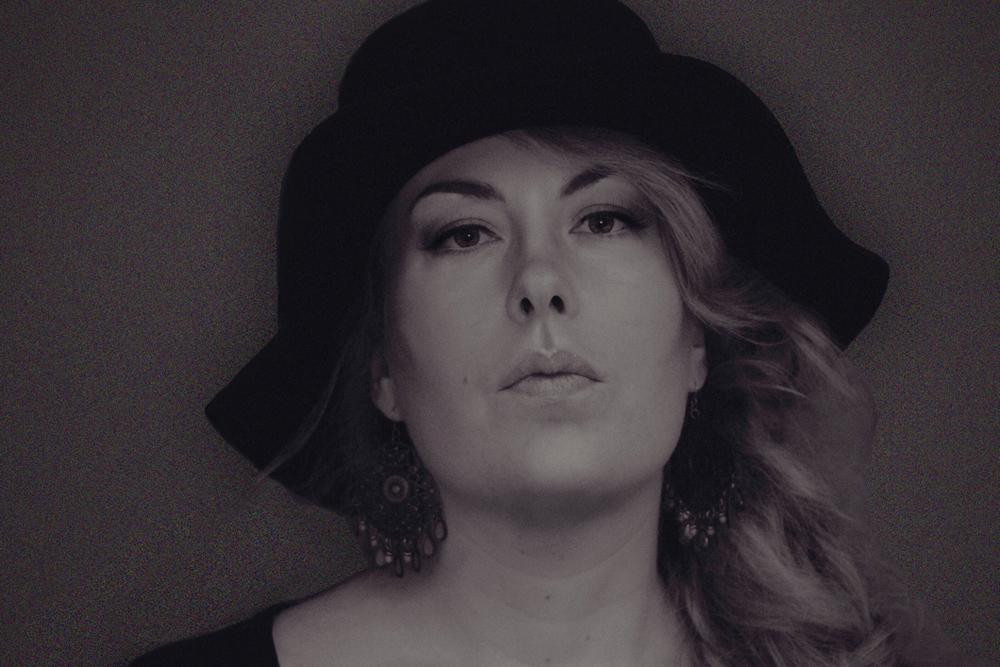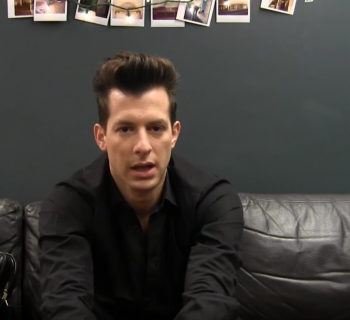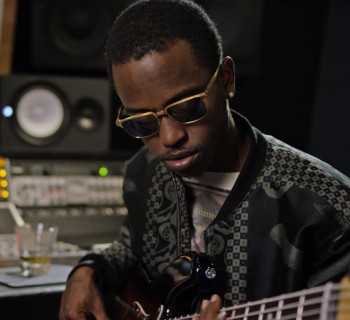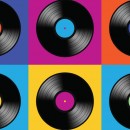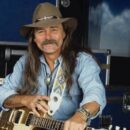A Grammy-winning producer, a celebrated DJ, a songwriter, guitarist and rock star ringleader: Mark Ronson is his own music industry. With the success of his full-length triple Grammy-nominated collection Uptown Special and his first No. 1 U.S. and U.K. single “Uptown Funk” featuring Bruno Mars, Ronson has reentered the stratosphere that he first orbited with Amy Winehouse.
With contributions from Stevie Wonder, Mystikal, Trombone Shorty, Kevin Parker and lyrics by novelist Michael Chabon, Uptown Special is a producer-driven collection of songs that, in theory, might appear as a mishmash of disparate outtakes. Given the sheer genius of Mark Ronson, the result is a feisty tapestry of musical ideas—all equally brilliant.
The most daunting challenge in interviewing Ronson is simply in scheduling the conversation. Within a single week he might be DJing a gig in Mumbai, India, engaging the dance floor in Dubai, United Arab Emivrates or rocking the house in Manchester U.K., all the while producing and helming multiple recording projects that keep him aloft and transitory.
Music Connection caught up with Ronson when he was in Los Angeles. In this exclusive interview, Ronson talks about his musical education, his best-known projects and how a musical creator delves into the unknown to extract results of extraordinary power.
Music Connection: We were listening to a mix tape today that you created on Spotify. One of the artists you included in your set list is the ‘60s Chicago band, Rotary Connection, fronted by R&B vocalist Minnie Ripperton. How did you first hear this music?
Ronson: I know all of those things from when I started getting into DJing when I was 17 and 18. We would go to all of these record stores in Soho for rock, soul and hip-hop, and they also have these record conventions on the weekends.
There was such a strong link between the hip-hop acts and R&B. I knew Rotary Connection from a sample in “Bonita Applebaum” by A Tribe Called Quest. The late ‘60s and early ‘70s soul, when it got more orchestral with the arrangements and a touch of psychedelia, that’s some of my favorite music of all time. As far as Minnie Ripperton, she’s one of my favorites, with her voice and the production.
MC: Two years ago this week we interviewed Jeff Bhasker, who was working on your record Uptown Special at that time. He told us that you were really good at crossword puzzles.
Ronson: I got Jeff hooked on crossword puzzles. I didn’t used to be good, but it is the kind of thing that you can do every day. I’m hopeless at English crossword puzzles; it’s just the New York Times that my brain is attuned to, and those weird words.
Read More: COVER STORY: Grammy-Winning Producer/Songwriter Jeff Bhasker
MC: Jeff indicated that there might be a correlation between making records and figuring out crosswords.
Ronson: I guess. I can’t say I agree with him. Now that he’s gotten better at crosswords I wonder if he’d change his tune. Doing a crossword is something in my day that I can do in my own order on my own time. In making a record you bring your own knowledge to it and it helps, but it’s often moments of divine inspiration when you are hoping to get a track going and that’s the only thing you can’t control. I definitely feel like there is a part of my brain that is good at problem solving, and I am sure it helps out in music a little bit.
MC: It is interesting to think that someone with your production credits perceives making music as an art in which you lack control.
Ronson: Making music is a strange profession. It’s something you can choose to do in your life, but no matter how much you practice or how much experience you have or how good the people that you are working with are, you can go to work and spend 12 hours doing everything you can do to get a good idea going and still leave empty handed at the end of the day or the week.
MC: Your staying power as a producer is impressive. To what do you attribute your longevity?
Ronson: I don’t know. I have definitely had peaks and valleys. It’s hard to answer a question like that without sounding a bit like a douche, because it’s about myself, and I’ve had a measure of success.
I look at my two biggest successes, the Amy Winehouse era and “Uptown Funk”; I think the easiest way communicating it is that Amy Winehouse and Bruno Mars are the two most talented people with whom I have had chemistry. There is just something in those two—a musical bond, a lot of love, something there. I don’t know how to express it.
Also, I don’t think I’ve ever shaped or changed what I’ve done according to the times. I think that that has helped.


